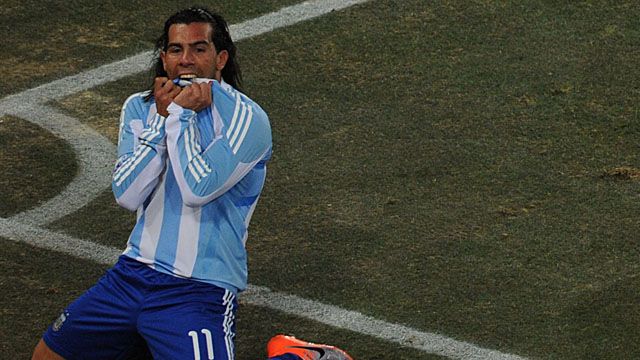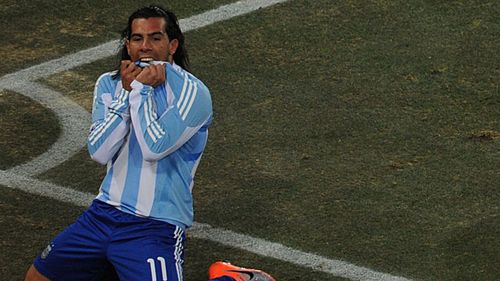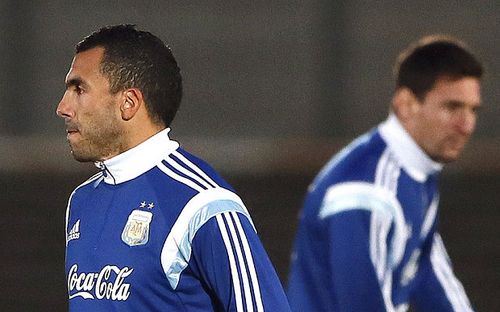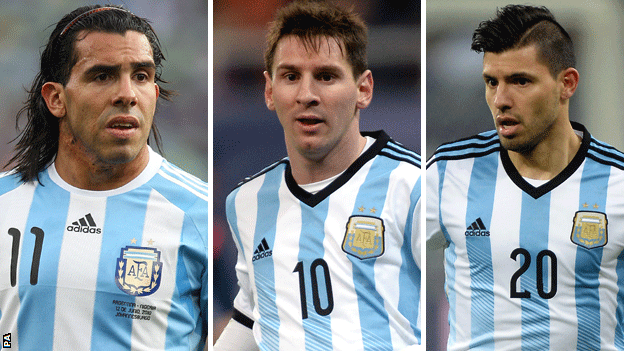
The Carlos Tevez experiment: What it means for Argentina

It was here, all those years ago, that Carlos Tevez first announced himself to what was a quite bewildered West Ham support. Not since the days of Paolo Di Canio had they acquired a taste of such delightfully foreign flavour, and they lapped up their new hero with all the customary gusto they reserve only for those who work for the cause.
His return to Upton Park was for the cause of his national team – as Argentina took on a second-string Croatian side that never really looked up for a fight. The cheers that emanated from the stands upon his entry once again proving that, whatever his sizable faults, Carlitos is a man who will forever be loved by the people.
There is much to be loved in the brash little man, who remains one of world football’s premier talents at 30 years of age. His continued form for Juventus demanded yet another call-up to the national team, and manager Tata Martino relented to the temptation.
Even so, the general sense is that Martino has pulled the proverbial rabbit out of his hat, and right now, the footballing world doesn’t know quite what to make of it.
Can Tevez find himself a place in the ridiculously top-heavy assortment of talent that makes up the Argentinian team today?

Lionel Messi – the colossus who stands in the way
The Argentinian captain has been at the heart of everything the Albiceleste have done over the past few years. Successive managers have moulded the team in the maestro’s image, and the last incumbent – Alejandro Sabella – was the one who handed Messi the armband.
For his part, Messi has responded to the trust the only way he knows how – and we have seen him play his best football for the national team in the period between 2011 and 2014. It is no coincidence that Tevez has not seen a look-in during this time.
On the playing field, Messi has an unerring knack of striking up chemistry with just about anybody; it is rather curious why Tevez remains the glorious exception.
Their interplay has often been sluggish; with perhaps Tevez’s tendency to drop deeper into the areas Messi usually inhabits working against the team.
Lack of commitment to the national cause
Following the disappointing loss to Germany at the World Cup in 2010, Diego Maradona was replaced by former international team-mate Sergio Batista at the helm. Batista was quick to hand Tevez a starting berth in his first match in charge, with Argentina defeating World Cup holders Spain 4-1, and Tevez himself scoring that day.
Things started to unravel when Tevez opted out of a one-off match against arch-rivals Brazil in 2010, citing an injury. The forward would go on to score a brace in Manchester City’s win over Fulham just four days later.
Despite not figuring in the team for a while for this slight, popular opinion rode over all other concerns as he was once again recalled for the Copa America on home soil in 2011. The tournament would be the beginning of the end for our protagonist, with the team noticeably improving after he was dropped after the first two matches.
In the quarter-finals against eventual champions Uruguay, Tevez had the misfortune of being the only player to miss in the penalty shoot-out. It would prove to be his last bit of action for the Albiceleste shirt in three years.
Now missing in a penalty shoot-out is a matter of chance and fate. But his continued remonstrations at the effort it takes to play for the national team certainly could’ve been avoided. Tevez maintained his air of nonchalance to the national team under Sabella’s reign, insisting that he did not miss playing for Argentina.
Curiously, he changed his tune as the World Cup drew closer, now shifting the blame to Sabella for not including him in the team’s plans. It seemed Tevez was unwilling to take the effort of cross-Atlantic trips to ensure his team made it to the World Cup; and was yet more than happy to be on board for when the tournament actually began.
As such, Sabella was probably right in keeping his close-knit bunch together, even if Argentina did fall short of the ultimate prize. It is interesting to note that Sabella had based the entire team on a theme of camaraderie, with a significant chunk of the players having played together since their U-20 days.
That team chemistry is still intact today, and it questions the judgement of bringing in a rather divisive figure into the group. Martino obviously thinks differently, and it is certainly worth his while to bring in a Tevez who should now be realising that this may well be his last shot at glory for the national team.

Team line-up
It seems highly unlikely that Tevez will replace the prolific Sergio Aguero in the starting line-up; with the Manchester City man sharing an excellent understanding with Messi both on and off the pitch.
Martino has restored his captain to the role on the right flank - a position we saw Messi occupy during the first El Clasico last year, when Martino himself was in charge at Barcelona. The player himself looks much more like his old self – there is a freshness to his play now that was certainly missing during the World Cup.
And although the Martino era has hardly clicked into second gear yet, there is cause for optimism, certainly with respect to Argentina’s chances at the Copa America in 2015. And it is here that Tevez’s inclusion makes sense.
Argentina has not lifted a major trophy since a Copa America triumph in 1993, and Martino is smart enough to utilise all the resources available to him. And even if one of them comes in the form of a surly, erratic Tevez, there can be no denying that the man himself is a force of nature when he is in the mood.
The forward made a habit of scoring crucial goals while coming on as a substitute in his time at Old Trafford; his typically all-action style was menacing for the defenders to deal with in the later stages of the game. Perhaps he will prove to be the spark Argentina need – for all their vitality and work-rate at the World Cup, they weren’t very threatening when it counted.
It seems rather appropriate then, that Tevez will next make his way to Old Trafford with the national team – where the spotlight will firmly be on the Lionel Messi vs Cristiano Ronaldo battle, as Argentina takes on Portugal.
The point is to keep expectations tempered where Tevez is concerned. He is an experiment designed to push Argentina through to a Copa America win in a year’s time; a short-term project that will light a fire that could go a long way.
And in any case, if he ends up lighting his own fuse, we could all just shake our heads and say – well, isn’t that just typically Tevez?
Sounds like the perfect gamble to me.